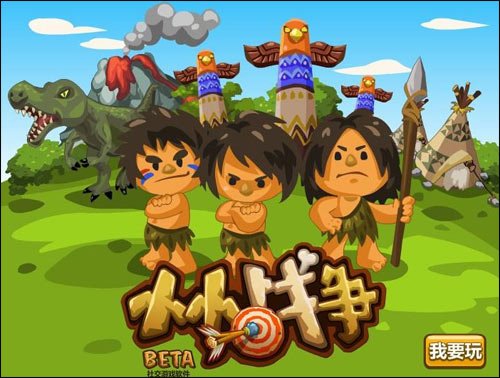“超级防火墙”难以阻挡中国游戏开发商进军Facebook
虽然中国将4亿2000万的互联网用户隔绝于Facebook社交网站之外,但却无法阻止郜韶飞等本土社交游戏开发商进军Facebook社交网站的步伐。
两年前,郜韶飞创办的游戏工作室五分钟正式在Facebook社交网站发布了首款游戏,并吸引了诸如美国Draper Fisher Jurvetson等投资公司。
在上周召开的社交游戏论坛上,郜韶飞表示中国社交游戏开发商很难忽略汇聚了全球各大社交游戏公司的Facebook市场。每天有超过100万游戏玩家在Facebook社交网站体验五分钟公司的游戏。虽然五分钟公司旗下游戏已经拓展到巴西,日本和韩国的社交网站,但Facebook仍是五分钟公司游戏最主要的市场。
玩家可以免费体验的社交游戏是Facebook社交网站的一种热门功能。FarmVille等热门社交游戏受到了全球许多游戏玩家和非游戏玩家的青睐。在社交游戏领域,游戏开发商和社交网站通过销售虚拟商品和刊登游戏内置广告获取收入。
郜韶飞的五分钟公司并不是Facebook社交网站上唯一的中国公司。然而,Facebook,Youtube和Twitter等国外热门网站却被中国互联网的“超级防火墙”拒之国门之外。
除了五分钟游戏公司以外,总部位于北京的乐元素公司旗下游戏拥有220多万Facebook日活跃用户,而其竞争对手ELEX公司也拥有高达130万的Facebook用户。
今年起,Facebook社交网站开始向所有使用Facebook Credits的游戏交易收取30%的提成。然而即便如此,不少中国游戏开发商仍然认为拥有5亿用户的Facebook社交网站前景比许多本土网站更加可观,纷纷涌向Facebook社交网站。
对此,PlayFish北京工作室的产品经理Andrew Mo表示可以理解为何众多小型社交游戏公司甘愿铤而走险进军西方游戏市场。“在中国,如果公司不具备一定的规模和人脉便很难在社交网站平台上争取到合理的收入分成。”
目前,Facebook社交网站拥有近1400万中文用户,主要分布在台湾,新加坡和香港等地。据Inside Network网站估计这一数据将在明年3月突破1600万。
反之,中国社交游戏工作室在Facebook取得的成功也吸引了不少西方社交游戏开发商进军中国市场。社交游戏巨头公司Zynga就在今年5月通过收购中国本土公司XPD Media成立了Zynga北京工作室。此外,去年收购了Playfish工作室的美国老牌视频游戏公司Electronics Arts早在2007年便创建了北京工作室。
对此,Zynga北京工作室负责人田行智也认为本地化战略十分重要。在宣布收购XPD Media的三个月后,Zynga发布了首款中文版Zynga游戏Texas Poker。
Zynga的田行智和Playfish的Andrew Mo都承认中国市场对社交游戏发展的重要性,然而两人拒绝透露是否会开发针对中国市场的社交游戏。田行智表示目前Zynga对中国市场仍采取观望态度。
与独立工作室不同,腾讯和盛大等中国网络游戏巨头公司并没有大举进军Facebook社交网站,然而这些网站提供了大量Facebook游戏的克隆产品。
另外,腾讯公司发布了向第三方开发公司开放的网站平台open.qq.com。然而,部分业内人士认为腾讯并没有像Facebook一样提供一个公平竞争的环境,明显更倾向于推广自产游戏。
对此,游戏开发兼发行公司6 Waves香港首席运营总监Arthur Chow表示一旦网站平台自身从事游戏开发就难免偏向于“自家的小孩”,但有些自制游戏并不能满足广大玩家的需求。同时,Chow认为中国游戏工作室开发的Facebook游戏应适当加入一些国际化元素,譬如感恩节促销等。
Facebook用户需要的是具有原创性和创新性的游戏,这是许多中国游戏开发商面临的真正考验。(本文为游戏邦/gamerboom.com编译,转载请注明来源:游戏邦)
China’s Internet censors may have kept most of the nation’s 420 million web users from accessing Facebook, but they have not stopped social game developers like Ellison Gao.
Five Minutes, a Shanghai-based studio co-founded by Gao, 27, launched its first social game two years ago and has attracted millions of dollars from investors, including US venture capital firm Draper Fisher Jurvetson.
“It is impossible for any Chinese developer to ignore the Facebook market, just as it is for all the other social game firms across the globe,” Gao told AFP at an industry forum last week.
More than a million users play his studio’s games each day on Facebook, the firm’s biggest market, although it has also moved onto local platforms in Brazil, Japan, and South Korea, Gao said.
Social games, which are usually free to play, are one of Facebook’s most popular features. Games such as Zynga’s FarmVille, in which users interact as they manage virtual farms, have become global hits.
Developers and social networking websites share revenue they generate from selling virtual goods and in-game advertising.
Gao’s firm is not the only Chinese company prospering on Facebook, which is blocked along with websites like YouTube and Twitter by China’s vast system of Internet censorship, dubbed the “Great Firewall”.
Beijing-based studio Happy Elements has an average of more than 2.2 million daily Facebook users while rival studio ELEX has about 1.3 million, according to tracking firm Inside Network.
Chinese game studios are swarming to Facebook, which collects a 30 percent share of revenues — terms developers say are more favourable than those of domestic sites — and offers an open platform with over 500 million users.
“It is not surprising that smaller companies are the ones taking the risks to develop for the Western market”, said Andrew Mo, head of product management at the Beijing studio of London-based social network game maker Playfish.
“Unless you are a big company in China, it is hard to get that relationship with different social network platforms in order to get a good revenue share-split.”
Facebook has an estimated 14 million Chinese-language users, mainly based in Taiwan, Singapore and Hong Kong. That number is expected to grow to 16 million by March, according to the Inside Network site that reports on Facebook.
The success of Chinese game studios on Facebook has also spurred Western social networking game developers like Zynga to set up shop in China to tap a growing pool of talented programmers.
San Francisco-based Zynga established a Beijing studio in May by acquiring local firm XPD Media, while US videogame maker Electronics Arts last year bought Playfish, which has been in Beijing since 2007.
“As we combine the web and games, it makes sense to build up a studio here to develop for the global market,” Andy Tian, head of Zynga’s Beijing studio, told a packed hall at the forum.
Three months after announcing the acquisition of XPD Media, Zynga launched a Chinese version of “Texas Poker” — Facebook’s third-most popular game.
Both Tian and Playfish’s Mo acknowledged the Chinese market’s importance, but declined to say whether they were developing games for it. Both are hiring in China.
“We are still taking a wait-and-see approach for the Chinese market — it will take time for it to fully open up,” Tian told AFP
In contrast to independent studios, Chinese online game giants like Tencent and Shanda do not yet have a significant presence on Facebook, though many of its popular games have been cloned for their platforms.
Tencent, whose instant message service has more than 600 million accounts, has launched open.qq.com, its own platform for third-party developers to create games and other applications.
However, some argue conglomerates like Tencent lack the kind of fair playing field that Facebook offers because they are likely to promote their own game units.
“If you also do your own games, then you will want to push your own games… That may not be the best game for the users,” Arthur Chow, chief operating officer of Hong Kong social game developer and publisher 6 Waves, told AFP.
Chow also noted Chinese studios on Facebook need to adopt a more international style, for example, by promoting virtual goods linked to Thanksgiving or Boxing Day.
“They (Facebook users) want some really creative and original ideas. That’s where the challenges are, particularly for most Chinese developers.” (source: mb.com.ph)








































 闽公网安备35020302001549号
闽公网安备35020302001549号